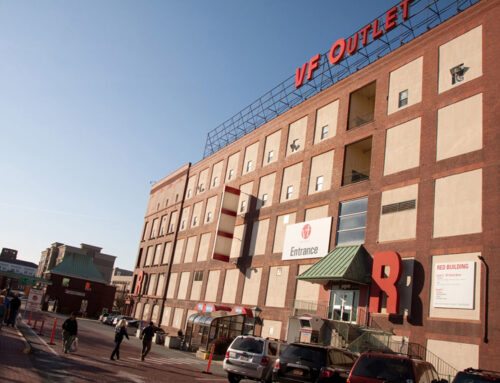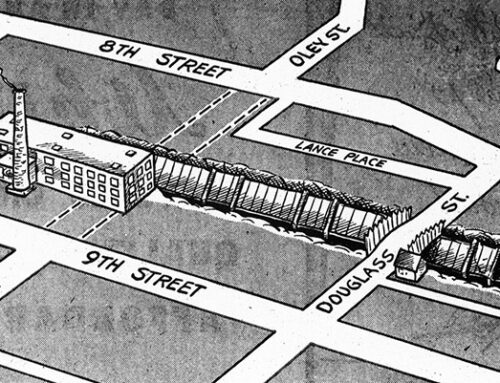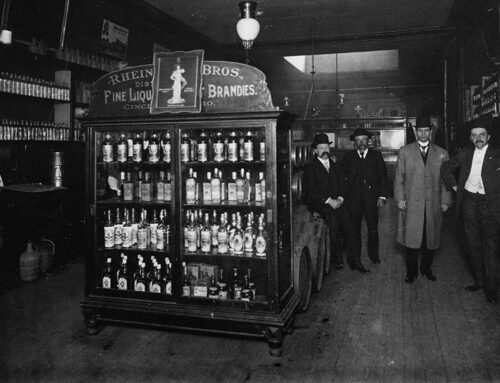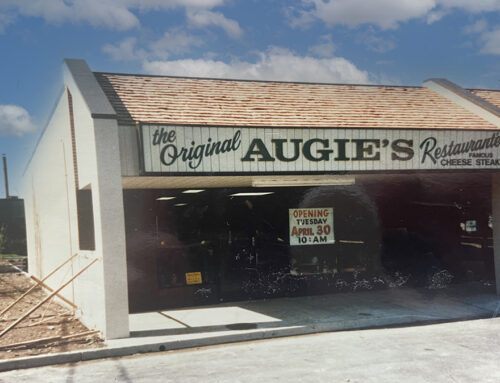Sarge’s Japanese Ice Cream Parlor opened its doors on June 24, 1916, at 932 Penn Street in Reading, Pennsylvania. Designed with an Oriental-inspired facade, the building reflected the early 20th-century fascination with Japanese aesthetics fueled by cultural phenomena like Puccini’s Madame Butterfly and Gilbert & Sullivan’s The Mikado. This distinctive architecture featured a second-floor balcony and wisteria-clad pergolas, giving it a unique allure among Penn Street establishments. Robert D. Sarge, the founder, had previously operated a confectionery business just a few doors up the street.

In 1916, he decided to expand his ambitions and transformed the building at 932 Penn Street, two doors below his original business, into an elaborate ice cream and confectionery store. To bring this vision to life, Sarge traveled extensively throughout the country, visiting renowned establishments and observing their designs and operations. Inspired by some of the finest rooftop gardens in Paris and elements of architectural elegance he encountered, Sarge created a one-of-a-kind space that combined European sophistication with a distinctly Japanese aesthetic.
The first floor featured Dutch-inspired mission-style furniture, while the second floor boasted an elegant rooftop garden with trellises, fountains, and imported Chinese lanterns. Sarge’s meticulous attention to detail and inspiration from his travels made the parlor a true gem in Reading. On its opening night, live music from the American-Hawaiian troupe attracted crowds, marking the establishment as a cultural hub for locals.
Below: The , above Ninth, as it appeared in 1934. In mid-block, the second-story Reading Garden, perched above Israel Williams’ clothing store at 932 Penn Street.
During its peak years, Sarge’s was a popular destination for Reading residents, offering hand-dipped ice cream, iced drinks, and confections in a luxurious setting. Ice cream was remarkably affordable—just 10 cents for a double dip, 15 cents for a banana split, and 25 cents for a quart to take home. These prices made Sarge’s a staple for families and young couples enjoying an evening stroll on Penn Street after shopping or attending a movie.


Transitions and New Ownership (1920-1930s)
In 1920, the business changed hands when George Thomas purchased the building and continued operating the ice cream parlor.
Below: On the left is George Thomas, who took over as proprietor of the 932 Penn establishment from Robert Sarge around 1919. Next to him stands William P. Sarge, Robert’s brother.

By 1923, it was rebranded as Crystal Confectionery under new management, emphasizing homemade sweets and popular fountain drinks. The second-floor garden was briefly repurposed as the Reading Garden Dance Studio in 1923, hosting dance lessons and public dances.

The parlor’s operations ceased in 1924, and over the next decade, the building saw a variety of tenants, including restaurants, dance halls, and other businesses. By 1929, it was transformed into a clothing store operated by Israel Williams, a venture that lasted until 1963.

Mid-20th Century Use and Decline
From the 1930s to the 1960s, the building housed diverse establishments, including the Reading Garden Restaurant, which offered eclectic dining and entertainment options. Later, the Horse Shoe Inn opened in 1942, branding itself as “The Meeting Spot of Reading” with live music performances.

By the late 1960s, the building became home to Flowers by Audrey Ann, a floral shop that operated until the late 1990s. Despite changes in tenants, the iconic Oriental facade remained a reminder of its vibrant beginnings as Sarge’s Japanese Ice Cream Parlor.
The End of an Era
By the early 21st century, the building at 932 Penn Street fell into disrepair. In 2018, it was demolished, along with neighboring structures, to make way for a proposed fire station intended to replace the aging station at 8th and Court Streets. However, plans for the new fire station were eventually abandoned, leaving the lot empty. To this day, the site remains undeveloped, a vacant reminder of the once-bustling establishment that stood there.
Below: A 2011 photo of 932, 932½, and 934 Penn Street captures the former location of Sarge’s once-popular ice cream parlor on the right, occupied by Fatima’s African Hair Braiding at street level. Next door, at 932½, is M&R MultyService, providing faxing, copying, money orders, and other community services. The storefront at 934 has been transformed into a residential space.








Leave A Comment